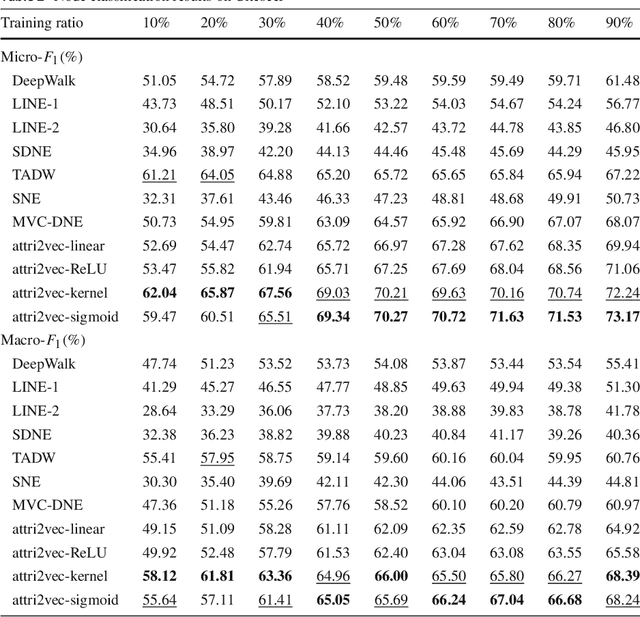Attributed Network Embedding via Subspace Discovery
Paper and Code
Jan 14, 2019



Network embedding aims to learn a latent, low-dimensional vector representations of network nodes, effective in supporting various network analytic tasks. While prior arts on network embedding focus primarily on preserving network topology structure to learn node representations, recently proposed attributed network embedding algorithms attempt to integrate rich node content information with network topological structure for enhancing the quality of network embedding. In reality, networks often have sparse content, incomplete node attributes, as well as the discrepancy between node attribute feature space and network structure space, which severely deteriorates the performance of existing methods. In this paper, we propose a unified framework for attributed network embedding-attri2vec-that learns node embeddings by discovering a latent node attribute subspace via a network structure guided transformation performed on the original attribute space. The resultant latent subspace can respect network structure in a more consistent way towards learning high-quality node representations. We formulate an optimization problem which is solved by an efficient stochastic gradient descent algorithm, with linear time complexity to the number of nodes. We investigate a series of linear and non-linear transformations performed on node attributes and empirically validate their effectiveness on various types of networks. Another advantage of attri2vec is its ability to solve out-of-sample problems, where embeddings of new coming nodes can be inferred from their node attributes through the learned mapping function. Experiments on various types of networks confirm that attri2vec is superior to state-of-the-art baselines for node classification, node clustering, as well as out-of-sample link prediction tasks. The source code of this paper is available at https://github.com/daokunzhang/attri2vec.
 Add to Chrome
Add to Chrome Add to Firefox
Add to Firefox Add to Edge
Add to Edge